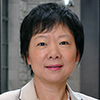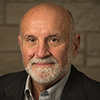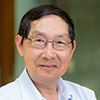Research / Areas of ResearchAdvanced Manufacturing
Innovating manufacturing processes, equipment, controls, predictive capabilities, and connectivity for enhanced productivity, precision, and sustainability
 Manufacturing has the largest economic multiplier effect of all industries, integrating both ideas and technologies across multiple disciplines, and aiming for the creation of processes and systems with a lasting positive environmental and societal impact.
Manufacturing has the largest economic multiplier effect of all industries, integrating both ideas and technologies across multiple disciplines, and aiming for the creation of processes and systems with a lasting positive environmental and societal impact.
View advanced manufacturing faculty
![]()
Research Area Subtopics

deposition system. (J. Cao, K. Ehmann)
Additive Manufacturing Processes and Systems
AM allows the creation of products with geometries and material systems that are not possible by other processes. We invent, improve, and characterize AM processes from the micro- to the macro-scale to create novel material architectures and enhance product performance. We further hybridize AM processes to advance the frontiers of processability and controllability.

Forming process schematic and sample formed parts.
(J. Cao)
Deformation-based manufacturing processes and systems
Deformation processing is the backbone of mass production. We are extending its applicability to benefit both high-volume production, such as forming of metal alloys and polymer-based composites, and one of a kind customized or low-volume products via incremental forming without using geometry-specific tooling. To this end, we develop innovative processes and machine systems.

surfaces (e.g., structural coloration and freefrom flat).
(P. Guo)
Micro/nano and Precision Manufacturing
Processes under this heading are seen by many as the key technologies of the century. We are pushing the limits of precision and resolution to enable scalable micro/nano manufacturing processes through new system design and process innovation (e.g., micro/nano machining, nano-fabrication, micro-forming and laser processing). Applications include surface texturing, metamaterials, plasmonic nano photonics, and soft robotics.

manufacturing process. (J. Cao, W. Chen, and
K. Ehmann)
Physics-based Data-driven Process Design and Control
To meet the stringent and ever-increasing demands on performance and productivity, model-based manufacturing needs to supersede conventional approaches. We establish solid understanding of process mechanics and use numerical simulations to determine, a priori, process parameters considering material and process uncertainties. We also link this understanding with synthetic and prior physical data and in situ process sensing to create robust process control solutions.

4.0. (P. Guo, J. Cao)
Digital Twins in the Connected World
Digital twins (virtual models) are the prerequisites for assessing and controlling all activities in a manufacturing system. We build and integrate digital twins of physical manufacturing systems to enable the realization of cyber-physical systems for sustainable manufacturing through the use of physical models and advanced AI analytics. We improve our understanding of ergonomics in different manufacturing environments by providing innovative wearable sensors.
![]()
ME Faculty
Jian Cao
Associate Vice President for Research
Cardiss Collins Professor of Mechanical Engineering and (by courtesy) Civil and Environmental Engineering, Industrial Engineering and Management Sciences, and Materials Science and Engineering
Director, Northwestern Initiative for Manufacturing Science and Innovation (NIMSI)
Wei Chen
Chair and Professor of Mechanical Engineering
Wilson-Cook Professor in Engineering Design
Professor of Industrial Engineering and Management Sciences and Materials Science and Engineering (by courtesy)
J. Edward Colgate
Walter P. Murphy Professor of Mechanical Engineering
Director, NSF Engineering Research Center on Human AugmentatioN via Dexterity (HAND)
Sridhar Krishnaswamy
Professor of Mechanical Engineering
Director of Center for Smart Structures and Materials
Wing Liu
Walter P. Murphy Professor of Mechanical Engineering & Civil and Environmental Engineering and (by courtesy) Materials Science and Engineering
Michael Rubenstein
Associate Professor of Computer Science
Associate Professor of Mechanical Engineering
Ryan Truby
Assistant Professor of Materials Science and Engineering
Assistant Professor of Mechanical Engineering
June and Donald Brewer Junior Professor
Gregory Wagner
Associate Professor of Mechanical Engineering
Director of Graduate Studies for Mechanical Engineering
Q. Jane Wang
Joseph Cummings Professor in Mechanical Engineering
Executive Director, Center for Surface Engineering and Tribology
Courtesy Faculty
Jennifer Dunn
Professor of Chemical and Biological Engineering and (by courtesy) Mechanical Engineering
Director, Center for Engineering Sustainability and Resilience
Associate Director, Northwestern-Argonne Institute of Science and Engineering
Julio Ottino
Walter P. Murphy Professor of Chemical and Biological Engineering and (by courtesy) Mechanical Engineering
Distinguished Robert R. McCormick Institute Professor
Professor of Management and Organizations, Kellogg School of Management
Aaron Packman
Professor of Civil and Environmental Engineering and (by courtesy) Mechanical Engineering and Chemical and Biological Engineering
John Rogers
Louis Simpson and Kimberly Querrey Professor of Materials Science and Engineering, Biomedical Engineering and Neurological Surgery (and by courtesy Electrical and Computer Engineering, Mechanical Engineering, Chemistry and Dermatology)
Director, Querrey Simpson Institute for Bioelectronics
Petia Vlahovska
Professor of Engineering Sciences and Applied Mathematics and (by courtesy) Mechanical Engineering




















